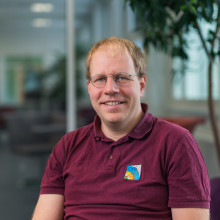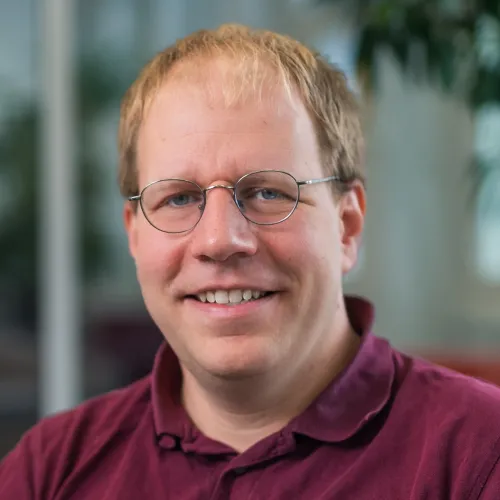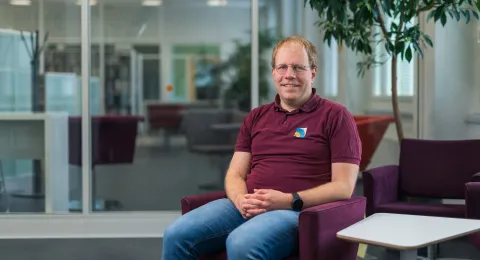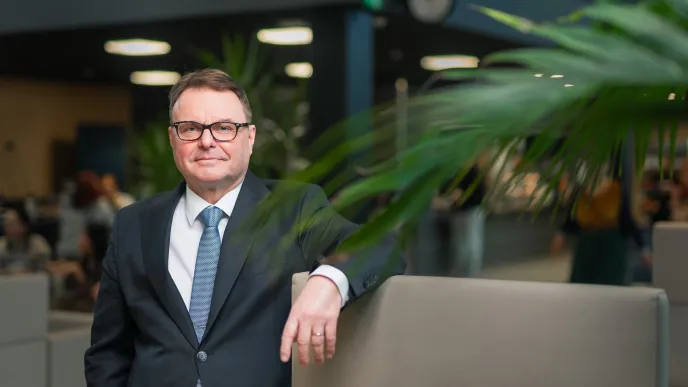What are the key topics in applied physics today?
Applied physics spans a wide range of topics, from understanding the universe to applying that knowledge in practical ways. My field is experimental particle physics, in which an important focus is on the use of advanced machine learning for real-time data analysis and detector optimization at the world's largest particle accelerator, the Large Hadron Collider (LHC).
Experimental particle physics studies the smallest building blocks of the universe by smashing particles together at high speeds. Scientists use machine learning to quickly analyze the data from these collisions and improve the detectors that capture the data. These experiments take place in the LHC.
This year, the European Strategy Update process for Particle Physics is preparing for the next generation of particle colliders in the 2040s to explore the energy frontier. Our department, along with the LUT School of Engineering Sciences faculty, is at the forefront of these efforts, contributing expertise in detector technology and data analysis, which also extends to applications in medical imaging and nuclear safety.
What are you currently working on?
I currently lead the ForVVard project, a pioneering initiative to both enhance the quality of the data recorded by our experiment in the notoriously challenging “forward” detector and to do the first-ever measurement of vector boson scattering (VBS) in a previously unexplored decay channel at the LHC.
Vector bosons are elementary particles that mediate fundamental interactions. For example, the W bosons play an important role in radioactive decays. When two of these vector bosons interact with each other this process is known as vector boson scattering. VBS is particularly fascinating because it is extremely rare and hard to find but provides a unique window into the fundamental forces of nature.
I am excited about complementing LUT’s long-standing engagement in particle physics instrumentation with my data analysis work and collaborating also with LUT colleagues from neighbouring departments. I am also involved in launching the new MSc program “Applied Physics” this autumn, which aims to integrate fundamental and applied physics into a dynamic curriculum.
How did you end up in an academic career?
My interest in academia probably began when my father took me to explore the Hamburg Observatory, where we watched the stars. This curiosity grew during my undergraduate years getting to know activities at CERN. After completing my PhD and postdoc at CERN, my family and I decided to move to Finland for a new adventure. Curiosity, enthusiasm, and a supportive atmosphere in my research environments have been important in my academic journey.
What do you enjoy most about your work? And what things would you like to change?
I find the blend of scientific exploration, mentorship and collaboration most fulfilling. Being part of a group of thousands of scientists worldwide, offers a unique chance to contribute to groundbreaking research and experience international cooperation.
The current academic career model could better support young talents. I advocate for more structured career paths and long-term security to retain the best and brightest in academia.
What is your greatest professional achievement so far?
I take pride in my role in advancing the world's largest particle accelerator and CERN activities in Finland, setting them on a dynamic growth path. Additionally, I am thrilled to witness the success of my former students and peers, both in academic and non-academic careers.
If anything was possible, what would you like to study? What ambitions do you have for your career?
If I could do anything, I would love to travel back to the beginning of the universe and be a spectator of the miracle that started unfolding then.
In my career, my goal is to create and maintain a world-class research community where curiosity flourishes, and the next generation of scientists feels inspired and supported to explore new frontiers.

Who or what has been your latest source of inspiration?
Recently I co-organized the Spåtind Nordic Conference on Particle Physics where the interaction between different generations of physicists inspired me the most. It was amazing to hear the enthusiasm of early-career researchers presenting their work and the reflections from senior scientists. This ongoing exchange of knowledge and optimism for future projects was incredibly motivating.
What should everyone understand about applied physics?
I would like people to understand that applied physics is a key driver of technological innovation, directly benefiting our world. It ranges from improving cancer treatment precision with advanced imaging to optimizing renewable energy technologies using methods from particle physics. Applied physics connects fundamental curiosity with real-world impact.
How do you maintain a work–life balance? How do you recharge after work?
I am taking advantage of academia's flexibility, allowing you to work on research and grant applications while being present for your kids. My favourite way to unwind is by visiting the islands of the archipelago, enjoying tenting, early morning saunas, and swims. There's always something enjoyable to do in Finland during any season.
More information:





